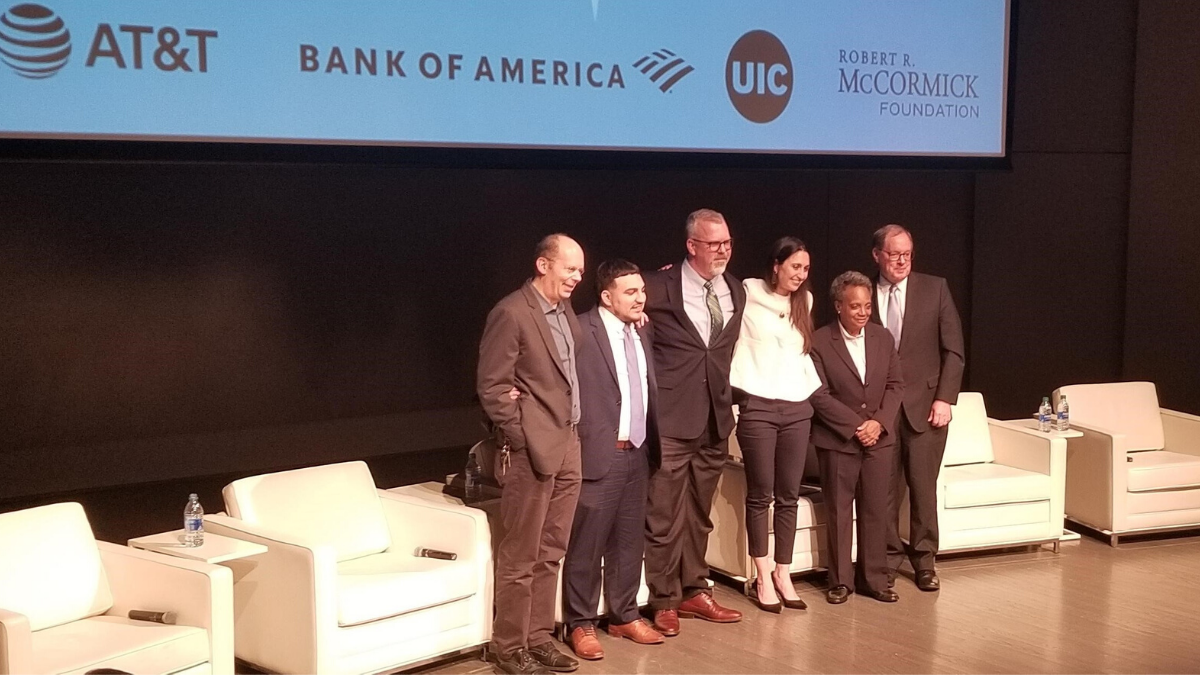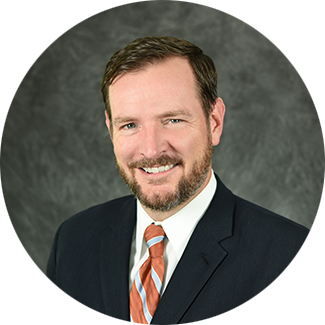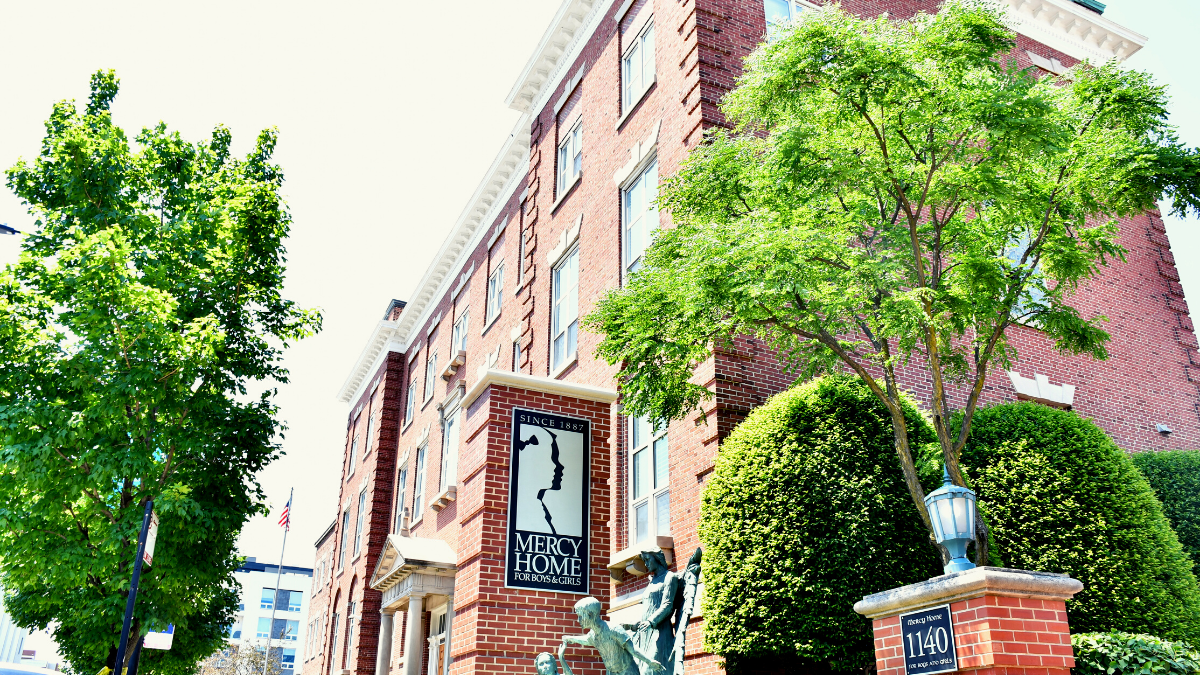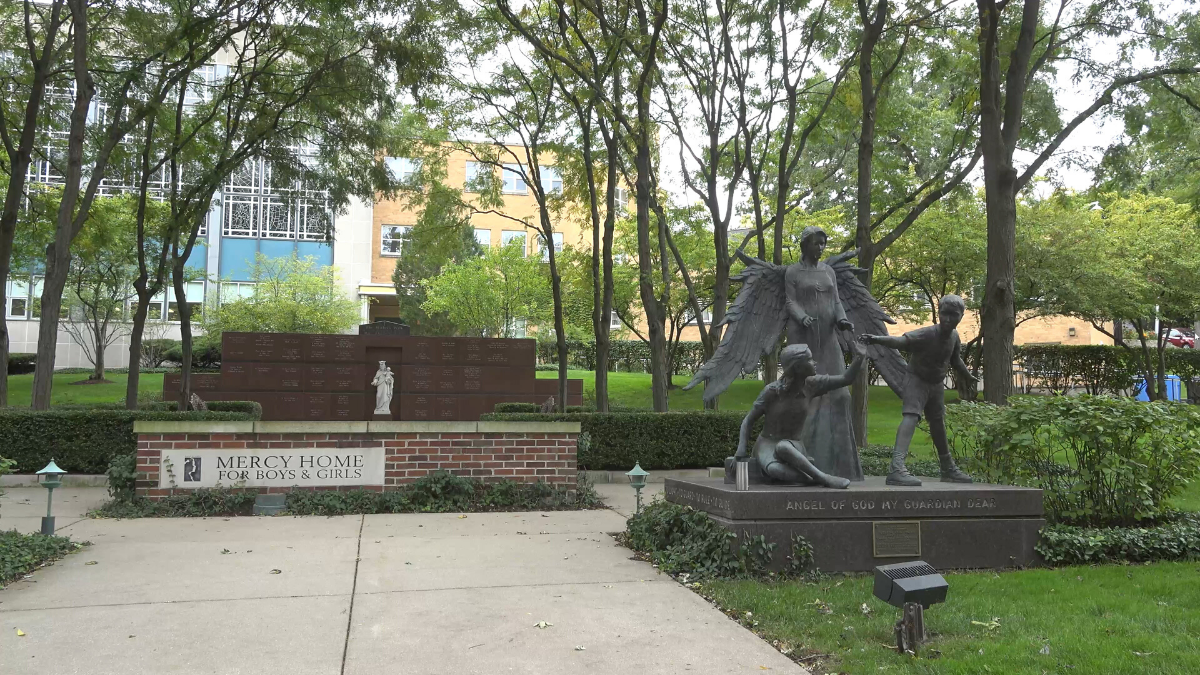On Monday evening, The Chicago Tribune hosted a panel discussion that included Chicago Mayor Lori Lightfoot, Thrive Chicago’s Sandra Abrevaya, Mercy Home’s Tom Gilardi and alumnus Marcelo Sandoval.
Moderated by Chicago Tribune Publisher and Editor-in-Chief Bruce Dold, the discussion was the first live event in the Tribune’s Chicago Forward: Young Lives in the Balance, a six-month communitywide initiative to address the challenge of reaching Chicagoland’s disconnected youth. Launched in January, Chicago Forward will feature editorial content and commentary as well as three live events and will encourage the sharing of ideas from the community.

In a series-opening letter from the editor, Dold wrote that while Chicago sparkles with such famous facets as its world-class architecture, ambitious shared spaces, vibrant arts and culture, diverse neighborhoods, creative and industrious citizenry and much more, our metropolis faces serious challenges to its future. One of those challenges, Dold wrote, is that “Many young people here are at risk of becoming disengaged, of dropping out of school, disconnecting from family, missing opportunities for careers, losing hope.”
Mercy Home alumnus Marcelo was featured prominently in co-panelist Kotlowitz’s most recent book, An American Summer: Love and Death in Chicago. As he did at last spring’s Graduates’ Luncheon, Marcelo gave a moving account of his journey from gang involvement to graduating college, a success story he credits to the relationships he found at Mercy Home that guided and motivated him. Positive adult relationships featured prominently in the discussion around helping youth succeed, as was the support that can be offered through public and private partnerships between organizations across the city, like Mercy Home.
“When we are smart and intentional about the way that we interact, the way that we provide interventions and support of young people, they can do remarkable things,” Mayor Lightfoot said.
“I’m looking at Father Scott from Mercy Home, and they know this going back decades, that when we reach out and support our young people, even in their darkest days; if we reach out with love and support and accountability, they will turn their lives around and they will thrive.”
Mercy Home VP of Youth Programs Tom Gilardi expanded on the ways in which Mercy Home provided that love and support for young people like Marcelo and so many others. “At the heart of what we do is relationships,” Gilardi said. “What’s made Mercy unique is our investment in trying to build authentic, transformative relationships.” He talked about the importance of helping youth develop the tools they need to respond in settings like school or work, and about working toward building resilience.
Abrevaya advocated for clearer data on the characteristics of disconnected youth and their needs. According to Thrive Chicago’s data, 47,000 Chicago youth, (or 15%) between the ages of 16 and 25 were neither in school nor working. Her non-profit organization seeks to align the efforts of youth-service providers.
For more on Chicago Forward, including editorial content and photos from Monday evening’s panel discussion, please visit the Chicago Tribune’s special Chicago Forward feature section. You can also view the full panel discussion in a video posted on the Mayor’s Office Facebook page.




